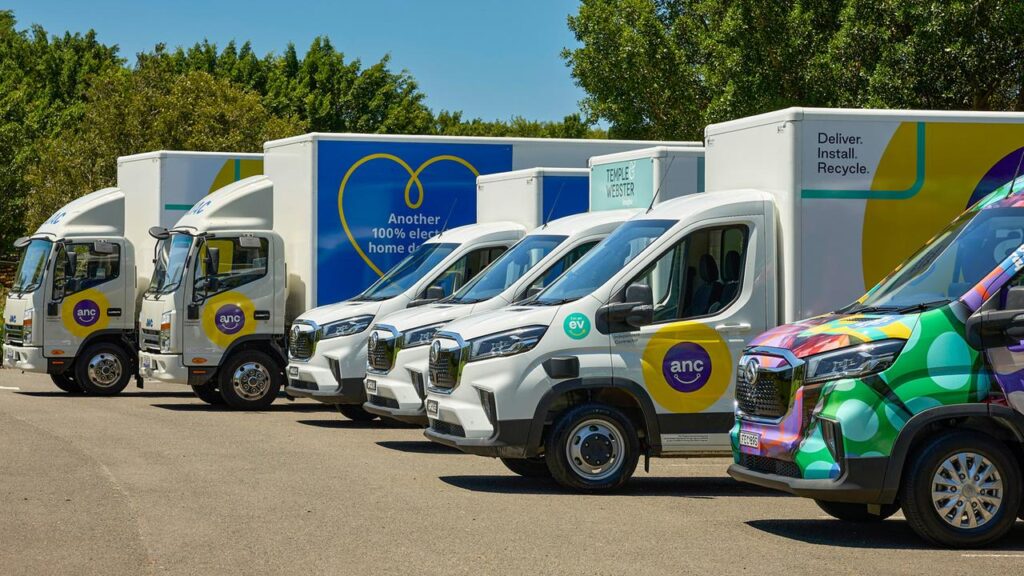Company accelerates electric truck parcel deliveries
Jennifer Dudley-Nicholson |

A major Australian transport firm is celebrating its adoption of more than 100 electric delivery vehicles and encouraging last-mile companies to investigate the swap in the lead-up to World EV Day.
Battery-powered commercial vehicles are becoming easier to access in Australia, but the company warns charging them remains a challenge and a national road-user charge for electric vehicles, if introduced too soon, could slow their adoption.
ANC Delivers announced its milestone on Monday, revealing it had added 111 electric vehicles to its delivery fleet since announcing plans to lower transport emissions in a project co-funded by the Australian Renewable Energy Agency.

The announcement comes weeks after Australia Post added another 36 electric vans to its network, and follows a record six months for electric vehicle sales in Australia.
Electric trucks, vans and tuk-tuks from brands including JAC, LDV and BILITI make up more than 12 per cent of the delivery vehicles used by ANC Delivers, chief executive Joe Sofra said, and have significantly reduced the company’s carbon footprint.
As of July, the electric vehicles had delivered more than 340,000 consignments, travelled 1.39 million kilometres and saved more than 622,000 kilograms of carbon emissions.
The tally is equivalent to taking 210 cars off the road for a year.
Consumers receiving deliveries from electric trucks and vans appreciated cleaner vehicles pulling up outside their homes, Mr Sofra said, but delivery drivers enjoyed the difference most.
“The overwhelming consensus we hear back is they’re quiet, they’re nice to work in and around, and they’re not noisy, rattly, exhaust-releasing vehicles,” he told AAP.
“They’re just smooth and that does translate to a nice environment to be working in.”

The company’s electric initiative, called Project Spark, was backed by a $12.8 million federal government grant and designed to replace 30 per cent of its diesel fleet by 2028.
ANC would add more than 50 electric vehicles to its network in the next year, Mr Sofra said, and consider investments in long-duration charging stations that could power up trucks and vans overnight.
Accessing charging infrastructure had emerged as one of the biggest challenges for drivers and owners, he said, and while the firm supported a road-user charge, he warned it should not be introduced to electric vehicles before their widespread adoption.
“If you throw it into the system too early, there’s no question in my mind that you will have the potential to create something that stalls progress,” Mr Sofra said.
“We’re still very much at the infancy of adoption.”
The company joins other local firms adding commercial electric vehicles to their fleets, including Australia Post, which introduced 36 electric Mercedes-Benz vans to its network in August, and Linfox, which announced plans to purchase 30 heavy-duty electric trucks from Volvo in May.
AAP